Alan Lomax
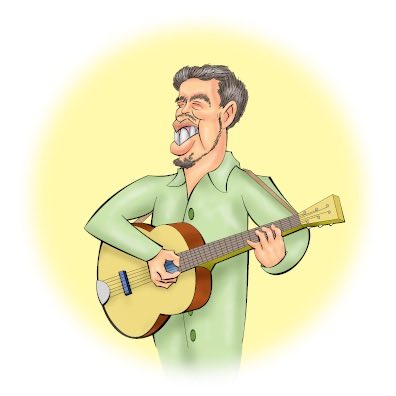
(Click to zoom in and out.)
Whether it was Alan Lomax or his dad, John Lomax, Sr., who was the most important American folk song scholar in the 20th century is an unanswerable question. But regarding the importance of the combined father-son duo, there is no dispute. All in all, though, given the volume and diversity of his work, we probably should give the nod to Alan.
Alan began his career in the early 1930's when he joined his father collecting folks songs. As a young man growing up in Texas, John began writing down the cowboy songs he learned from the real-life cowboys he had known. His book "Cowboy Songs and Other Frontier Ballads" was published in 1911 and remains a classic. Then in the 1930's John was able to get a grant from the Library of Congress and he began traveling the country visiting farms, towns, and even prisons as an itinerant ballad hunter.
But as the 30's rolled on, John wasn't getting any younger (he was born in 1867) and he was turning more of the day to day duties to his son. In 1937 Alan became the Assistant in Charge of the Archives of Folk Songs at the Library of Congress. In a couple of years he was writing folk song programs for radio, one of which was the 1940 "Back Where I Come From". "Back Where I Come From" was part of a series called Forecast and was the first national broadcast to feature a then relatively young Woody Guthrie. Alan later moved to Hunter College at the City University of New York where he continued his cultural research and branched out into film production.
And along the way during Alan's long and productive career he authored one of the most comprehensive anthologies of American folk songs published in the 20th century. This was the monumental Folk Songs of North America. Before then urban folk singers had to turn to Carl Sandburg's American Songbag. Certainly Carl's book was influential but it only covered songs circulating before the mid-1920's.
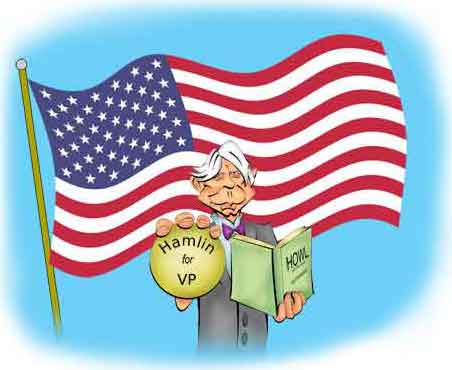
Carl Sandburg
Up to the 1920's
In his book Alan borrowed from Carl1, but he also included songs from the 1930's, 40's, and even into the 50's. So he documented songs from Huddie Leadbetter (better known as Leadbelly) and Woody, but also those of country singer Merle Travis who was still recording and performing in the 1970's. Alan selected two of Merle's tunes, "Dark as a Dungeon" and "Sixteen Tons", the latter already having sold tens of millions of copies after it had been covered by Tennessee Ernie Ford2.
Footnote
Once during a concert Merle sang "Sixteen Tons" and said that he had never really liked the song that much until Tennessee released his version. "I guess it's about my favorite song now," Merle added.
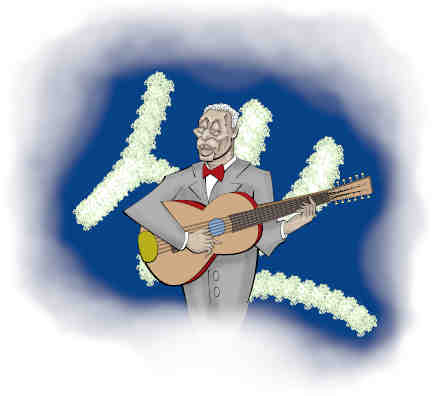
Huddie ...
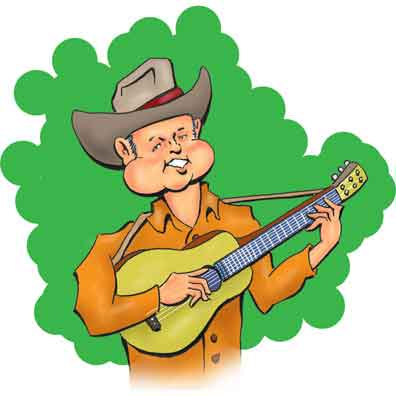
... Merle ....
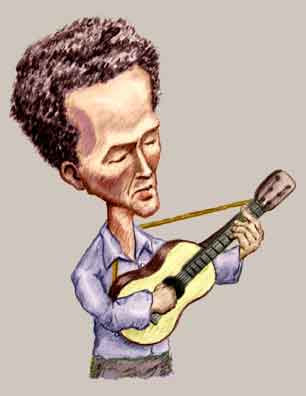
... and Woody.
Alan's book was published in 1960 and although later editions were issued (including a paperback3), it has never been revised or updated. So naturally there are no songs by the folk singers who arose in the 60's4.
Footnote
Alan did include "Tom Dooley" which arguably launched the 60's Folk Revival. The book was published after the Kingston Trio had their hit release, but the arrangement in Alan's book was based on the singing of folk singer and scholar Frank Warner. Frank in turn first heard the song from the singing of North Carolina banjo maker, Frank Proffitt.
Alan also mentioned the #1 hit of 1950, "Irene Goodnight". The tune went to #1 that year when released as a single by The Weavers (Pete Seeger, Ronnie Gilbert, Lee Hayes, and Fred Hellerman) backed by the orchestra of Gordon Jenkins. Alan didn't mention the Weavers by name but was discussing the life of Leadbelly and how this was his favorite song. Pete, though, was one of Alan's long time friends and he did mention Pete in the references.
But 1960 is probably a good cut-off date defining when the creation of true folks songs had become part of the past. Certainly by the Swinging Sixties electronic media had pretty much ended the days of the "anonymous bard" who wandered around the land and spread his songs to the people5.
Footnote
Of course, radio transmission of music began as early as 1905 and by the 1920's radio and recordings were major industries. But although by 1950 Woody was officially living on Coney Island in New York, he was still ramblin' around and singing his songs even then, traveling by bus or hitchhiking to wherever he decided to go. In 1951, Woody rambled to Sapulpa, Oklahoma, where he sang his famous "So Long It's Been Good To Know You" at the local high school commencement. What the circumstances were that brought Woody to a graduation ceremony in this fairly upscale Tulsa suburb aren't clear. Of course, his father, Charley Guthrie, was still living in Oklahoma City about 90 miles to the southwest, and his younger sister, Mary Jo, lived in Seminole, not far from the Guthrie family hometown of Okemah.
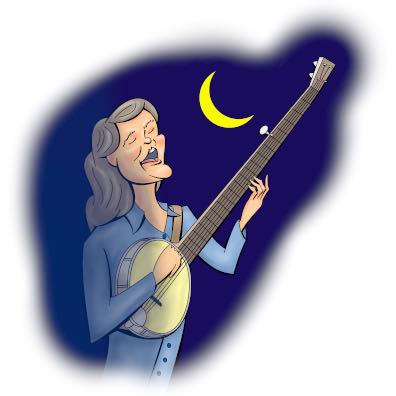
Peggy
Alan sang her praises.
Of course, Alan couldn't undertake such a massive oeuvre as "Folk Songs of North America" by himself. English folk singer Shirley Collins was credited as the editorial assistant, and in the forward Alan gives her much praise as he did Peggy Seeger who notated the melodies and provided the guitar chords. Peggy also wrote the section on how to play the songs with banjo accompaniment. Matyas Seiber and Don Banks wrote piano arrangements for a number of songs and master artist Michael Leonard provided great black and white ink drawings which added a lot to the book.
As some readers will know, you can read a little more about Alan if you just click here.
References
"Alan Lomax Collection", Library of Congress.
"Alan Lomax", Cultural Equity.
"Lomax Family at the American Folklife Center", Library of Congress.
"American Folklife Center", Library of Congress.
Folk Songs of North America, Alan Lomax, Doubleday, 1960.
The American Songbag, Carl Sandburg, Harcourt Brace And Company, 1927.
"Back Where I Come From", Alan Lomax (writer), Woody Guthrie (performer), Burl Ives, (performer), Clifton Fadiman (host), CBS, August 19, 1940.
"Merle Travis" Discogs.
"Appalachian Journey", Alan Lomax (director), Jaime Barrios (associate producer), Michael Dibb (producer), Dibb Directions, 1991.
"Woody Guthrie will sing 'So Long' ...", Sapulpa (Oklahoma), Sunday Herald, May 13, 1951, page 4.
"Mary Jo Guthrie Edgmon", Tulsa World, March 19, 2019
"Charles Edward 'Charley' Guthrie ", Shanna Pierce, Find-a-Grave, October 12, 2006.
Peggy Seeger, Peggy Seeger Website
Michael Leonard, Michael Leonard Wsebsite.